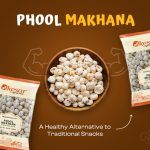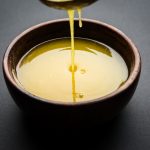In the intricate tapestry of human nutrition, one often-overlooked but crucial element is Vitamin K. This lesser-known vitamin plays a pivotal role in various bodily functions, from clot development to bone health. As we delve into the significance of Vitamin K, it becomes evident that maintaining an ample intake is essential for overall well-being.
Vitamin K, a fat-soluble vitamin, is renowned for its role in blood clotting, a function vital for preventing excessive bleeding after an injury. Beyond this, Vitamin K contributes significantly to skeletal well-being, assisting in the regulation of calcium within the bones and preventing the calcification of blood vessels. Additionally, emerging research suggests its potential role in cardiovascular fitness, inflammation modulation, and ocular health.
In essence, Vitamin K serves as a linchpin in maintaining the delicate balance required for several physiological processes. Vitamin K exists in two primary forms: K1 (phylloquinone) and K2 (menaquinone). K1 is abundant in leafy green vegetables like spinach and kale, while K2 is found in fermented foods and certain animal products.
Understanding the distinction between these forms is crucial as they play distinct roles in the body. K1 is predominantly associated with crimson fluid clotting, whereas K2 is recognized for its involvement in osseous metabolism and cardiovascular health.
By incorporating a diverse range of foods rich in both K1 and K2, individuals can ensure a comprehensive intake of Vitamin K. The benefits of maintaining an optimal Vitamin K intake extend far beyond the hemostatic process and osteological health.
Adequate Vitamin K levels are associated with a reduced risk of fractures, improved arterial health, and potential protection against age-related conditions.
Furthermore, recent studies have highlighted its potential in promoting cognitive function and reducing the risk of certain chronic diseases. Including Vitamin K-rich foods in one’s diet is a proactive step towards safeguarding overall health and well-being.
Top 10 Vegetarian Sources of Vitamin K In Indian Cuisine
Adequate Vitamin K intake offers a trifecta of benefits for optimal health. Firstly, it plays a pivotal role in claret clotting, essential for wound healing and preventing excessive bleeding.
Secondly, Vitamin K is a linchpin in maintaining osseous wellness by regulating calcium within the bones, reducing fracture risks. Thirdly, it contributes to cardiovascular health, preventing arterial calcification, supporting overall heart function, and improving insulin sensitivity.
Additionally, emerging research indicates anti-inflammatory properties, showcasing its potential in reducing inflammation and supporting immune function. Ensuring a balanced Vitamin K intake through a diverse diet is a proactive approach towards holistic well-being.
Green Leafy Vegetables
Green leafy vegetables stand as verdant pillars of Vitamin K, promoting overall health. Spinach, or Palak in Indian cuisine, is a nutritional powerhouse, abundant in Vitamin K1 and various other essential nutrients. Mustard greens, known as Sarson ka Saag, contribute to a robust Vitamin K intake, enhancing ruby fluid clotting and osteal health.
Fenugreek leaves, or Methi, are another potent source, not only infusing dishes with rich flavor but also delivering a significant dose of this vital vitamin. Incorporating these vibrant greens into your diet ensures a nutritious way to fortify your body with Vitamin K.
Cruciferous Vegetables
Cruciferous vegetables emerge as nutritional powerhouses, offering a bounty of health benefits and a notable source of Vitamin K. Broccoli, with its vibrant green florets, is rich in Vitamin K1, promoting coagulation and osteo health.
Brussels sprouts, mini-cabbages with a distinct flavor, are another cruciferous gem providing a substantial dose of Vitamin K.
This essential nutrient, crucial for cardiovascular health and ivory metabolism, is seamlessly woven into the cruciferous tapestry.
Beyond Vitamin K, these vegetables boast antioxidants and other vitamins, making them indispensable for a well-rounded diet. Including broccoli and Brussels sprouts in your culinary repertoire not only adds a delightful crunch to your meals but also contributes to a holistic approach to health and well-being.
Herbs
Coriander, known as Dhania, not only adds a burst of flavor to dishes but also provides a generous dose of Vitamin K, supporting fibrogenesis and skeletal vitality.
Parsley, or Ajwain Patta, is a versatile herb abundant in Vitamin K, promoting cardiovascular health and aiding in calcium regulation. Basil, or Tulsi, is more than a sacred herb; it enriches your diet with Vitamin K, offering anti-inflammatory properties.
Mint, or Pudina, with its refreshing taste, delivers a notable amount of Vitamin K, adding not just flavor but also nutritional value to your meals.
Including these herbs in your culinary repertoire not only tantalizes the taste buds but also contributes to a holistic and nourishing approach to maintaining good health.
Spring Onions – Hara Pyaz
Spring onions, or Hara Pyaz in Indian kitchens, emerge as a flavorful and nutrient-rich addition to meals, offering a commendable source of Vitamin K.
These vibrant green stalks contribute to platelet aggregation and osteogenic fitness, thanks to their Vitamin K content. Beyond their nutritional prowess, spring onions impart a mild onion flavor to dishes, enhancing the overall culinary experience.
Whether incorporated into salads, stir-fries, or garnishes, these versatile onions not only elevate the taste but also provide essential vitamins for a well-balanced diet.
The distinct green hue signifies their chlorophyll content, indicative of their rich nutrient profile. Including Hara Pyaz in your daily cooking adds a pop of color to your plate and also ensures a nutritious way to boost your Vitamin K intake.
Asparagus – Shatavari
Asparagus, known as Shatavari in Indian cuisine, is a slender and succulent vegetable that not only graces the plate with its unique taste but also serves as a remarkable source of Vitamin K. Rich in this essential nutrient, Shatavari contributes to coagulative function and calcified tissue density. Beyond its nutritional value, it has been traditionally acclaimed for its potential medicinal properties in Ayurveda.
Asparagus is also loaded with antioxidants, contributing to overall well-being. Its versatility allows for various culinary applications, from salads to stir-fries, enhancing the nutritional content of meals. Embracing Shatavari in your diet not only introduces a delectable addition to your dishes but also ensures a nourishing way to incorporate Vitamin K, fostering a holistic approach to health and vitality.
Cabbage – Patta Gobhi
This humble yet versatile vegetable offers a considerable dose of this essential nutrient, promoting thrombotic response and maintaining healthy skin.
Whether shredded into coleslaw, stir-fried, or incorporated into curries, Patta Gobhi effortlessly adds a crisp texture and mild flavor to diverse dishes.
Beyond its Vitamin K content, cabbage is known for its dietary fiber and antioxidant properties. Including Patta Gobhi in your meals not only enhances nutritional intake but also contributes to a wholesome and balanced approach to nourishment.
Okra – Bhindi
Okra, also known as Bhindi in Hindi, is a green, finger-shaped vegetable with a unique taste and texture. This versatile vegetable is a rich source of various nutrients, including Vitamin K. Vitamin K plays a crucial role in supporting cognitive function.
In 100 grams of okra, you can find a significant amount of Vitamin K, contributing to your daily nutritional needs. Including okra in your diet can support skeletal health by aiding in calcium absorption and promoting bone mineralization. Additionally, Vitamin K is essential for the proper coagulation process, preventing excessive bleeding.
Beyond its nutritional benefits, okra is a popular ingredient in various cuisines, known for its mucilaginous texture and ability to thicken soups and stews naturally. Whether sautéed, fried, or added to curries, okra provides a healthy dose of Vitamin K.
Dried Fruits
Dried fruits are a concentrated source of essential nutrients, including Vitamin K. While the Vitamin K content in dried fruits varies, many of them contribute significantly to your daily intake. Examples of dried fruits rich in Vitamin K include dried prunes, raisins, and dried apricots. Vitamin K plays a crucial role in plasma strength and cartilage health.
Consuming dried fruits can support these functions and contribute to overall well-being. In addition to Vitamin K, dried fruits provide dietary fiber, antioxidants, and various vitamins and minerals. Incorporating dried fruits into your diet is a convenient way to enjoy their nutritional benefits.
You can snack on them as they are or add them to cereals, yogurt, or trail mix. However, it’s essential to consume them in moderation due to their concentrated natural sugars. Including a variety of dried fruits in your diet can contribute to a well-rounded intake of essential nutrients, including Vitamin K.
Soybeans And Soy Products
They are excellent sources of Vitamin K. Soy products such as tofu, tempeh, and soy milk are popular alternatives for those seeking plant-based protein.
These products are not only rich in protein but also provide a range of vitamins and minerals, including Vitamin K. Including soy-based foods in your diet can be beneficial for maintaining proper thrombogenicity mechanisms and supporting bone metabolism.
Moreover, soy products offer versatility in the kitchen, allowing for a variety of culinary creations. Whether incorporated into stir-fries, and salads or used as a meat substitute, soybeans and soy-based foods can contribute to a well-rounded and nutrient-rich diet.
Nuts And Seeds
Nuts and seeds are nutritional powerhouses that contribute to overall health, including the crucial role of supporting Vitamin K functions. Vitamin K is essential for various bodily processes, making it vital for overall well-being. In terms of blood clotting, nuts and seeds supply Vitamin K, aiding in the synthesis of blood-clotting proteins.
This is pivotal for wound healing and preventing excessive bleeding. Additionally, Vitamin K’s involvement in bone metabolism is significant, regulating calcium and thereby contributing to bone density, reducing the risk of fractures, and osteoporosis.
Nuts and seeds also play a role in cardiovascular health by providing Vitamin K, which helps prevent arterial calcification, reducing the risk of heart-related issues.
Furthermore, emerging research suggests that Vitamin K’s anti-inflammatory properties may contribute to immune system support.
Beyond these benefits, studies indicate a potential role of Vitamin K in supporting cognitive function and reducing the risk of age-related cognitive decline.
Conclusion
In the vibrant tapestry of Indian cuisine, the quest for optimal health finds a delicious ally through Vitamin K-rich foods. From the verdant greens like spinach, mustard, and fenugreek leaves to the cruciferous wonders of broccoli and Brussels sprouts, and the aromatic herbs like coriander, parsley, basil, and mint—Indian vegetarian fare offers a palette to elevate your Vitamin K intake.
As we conclude this culinary journey, it’s clear that beyond the exquisite flavors, these foods are nutritional powerhouses, contributing to blood clotting, bone health, cardiovascular well-being, and more. Embracing these ingredients not only tantalizes the taste buds but also exemplifies a holistic approach to nourishing the body. So, let your plates be a canvas painted with the hues of health, as you savor the benefits of incorporating these top Indian vegetarian foods into your daily meals. Cheers to a thriving, well-nourished life!
If you are looking to purchase vegetarian items that are rich in Vitamin K, check out the Kesar Grocery marketplace right away. It has got the ideal food at a great price. Stay healthy!
References:
https://ods.od.nih.gov/factsheets/VitaminK-HealthProfessional/
https://www.healthline.com/nutrition/foods-high-in-vitamin-k#bottom-line



